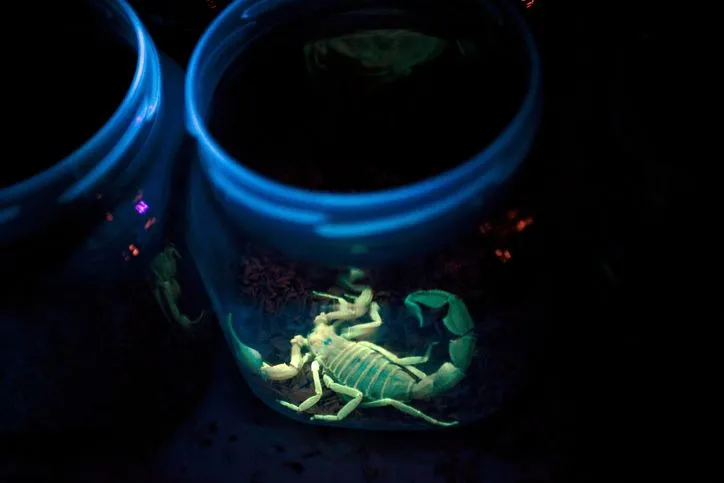
A full third of brain tumors are gliomas, a category of tumor that may not respond to chemotherapy or radiation treatment and tend to grow quickly into the surrounding brain tissues. The spindly tendrils of gliomas make them especially difficult to remove through surgery given that all parts of the tumor have to be removed for the surgery to be effective.
Given the issues of operating on gliomas, the team decided to turn to nature for help. Within scorpion venom is found an amino acid compound that readily binds to tumors but not regular cells and is nontoxic. An artificial version is found in the team's imaging agent, BLZ-100, along with a fluorescent dye that helps to differentiate the tumor when stimulated by a laser.
The team tested the imaging agent and single camera system out on patients during surgery and reported no serious allergic negative side effects popup. Once the imaging agent has been used, the team's camera system comes into play. The single camera has two modes, either regular microscope or a fluoresent camera. They plan to test the system on pediatric patients next.
Read more: http://rsci.nl/9sy
Image: Getty